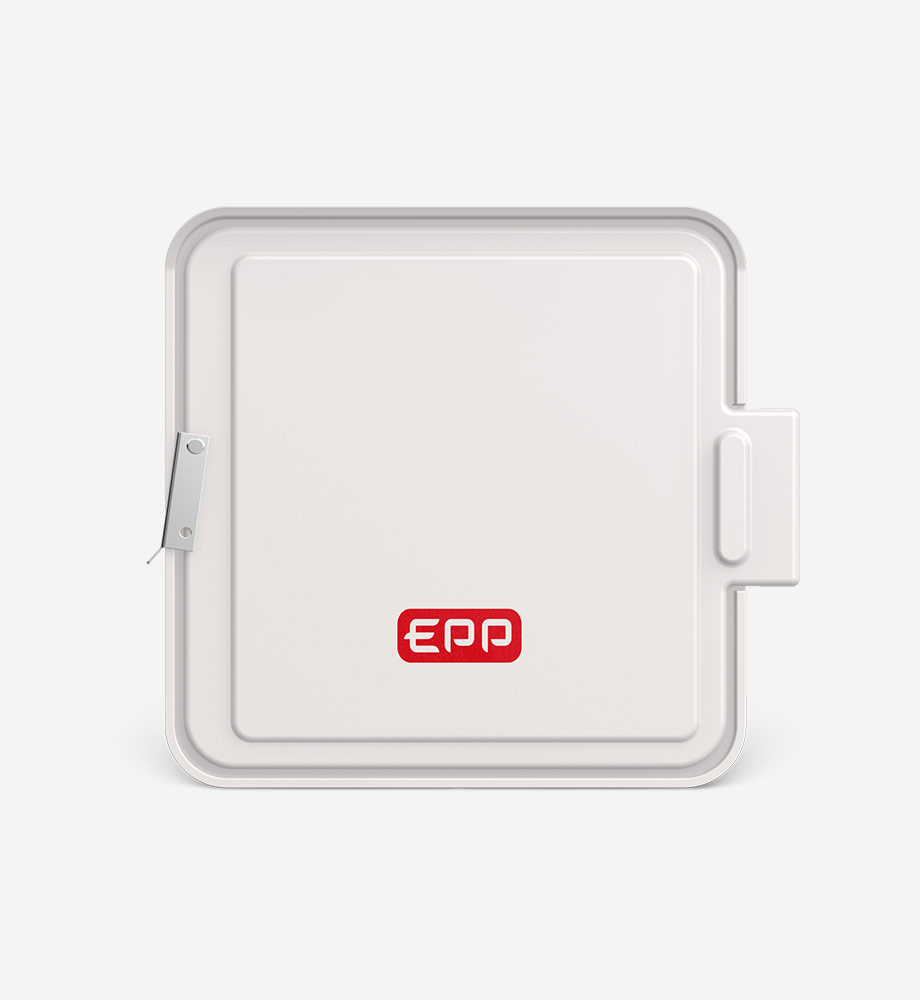Key Features
- Corrosion/Chemical Resistance: Unaffected by most acids, alkalis, salt spray and solvents.
- Moisture & UV Proof: 100% waterproof seals and UV-stabilized gelcoat protect against rain, sun and humidity.
- Lightweight Construction: Drastically lower weight than steel, reducing installation cost and structural support requirements.
- Electrical Insulation: Glassfiber laminates are insulators; FRP enclosures do not conduct electricity.
- High Impact Strength: Thick fiberglass walls provide mechanical protection; doors form a tight, tamper-resistant closure.
- Molded-In Color: Enclosures come factory-painted in gelcoat (no need for field painting).
- Extended Lifespan: Designed for 10× the life of steel cabinets (e.g. 30+ years of corrosion-free service).
- Field-Modifiable: Holes, cutouts and mounting features can be added on-site with ordinary power tools (no hot work permits needed).
Benefits
- Low Maintenance: Once installed, FRP enclosures require virtually no upkeep – no rust, no repainting.
- Safety & Compliance: Non-conductive walls improve personnel safety; immune to lightning strike surges (no induced currents).
- Hurricane/Storm Resistance: High-impact FRP resists denting or failure in high winds and flying debris.
- Cost Savings: Lower weight means shipping and erection costs are reduced; long life and no replacement cuts capital expenditure.
- Vandalism Deterrent: FRP has almost no scrap value, reducing theft of copper or cabinet.
- Radio Transparency: Unlike metal, FRP does not block radio waves or microwave signals – ideal for antenna or radar housing.
Applications
- Power & Substations: Instrument and relay enclosures, transformer junction boxes and control kiosks (dielectric cabinets near high voltage).
- Oil & Gas / Petrochemical Plants: Control panels, switchgear housings and instrument shelters in corrosive and hazardous zones.
- Telecommunications: Outdoor pedestal boxes and cell-site NEMA enclosures for equipment, antennas and junctions.
- Traffic & Signaling: Street-light control cabinets, traffic signal controllers, and railway signal housings (exterior, vandal-resistant).
- Water/Wastewater: Pump station panels, SCADA and instrumentation cabinets in chlorinated or saline environments.
- Industrial Automation: Fiberglass-covered machine guards, safety cages and electrical cabinets on factory floors.
- Marine & Coastal: Equipment shelters on docks and ships (withstanding salt spray and humidity).
- Research & Defense: Enclosures around microwave or RF equipment (non-metallic barriers) and hazardous-area instrumentation.
Technical Specifications
- Material: UV-resistant polyester or vinylester fiberglass; typical wall thickness 3–6 mm or more for high-impact models.
- Ratings: Many models achieve NEMA 4/4X or IP65/IP66 for weather and washdown protection. UL-listed versions are available.
- Sizes: Standard boxes from as small as 100×150×100 mm to large walk-in shelters; custom builds for unusual dimensions.
- Mounting: Options for flange, wall, pole or frame mounting; knockouts and bosses for conduit entry.
- Accessories: Glass door/window, internal panels, hinged covers, and lockable hardware.
- Operating Temp: Typically –30°C to +80°C; UL94-V0 flame class (non-ignitable) on many enclosures.
Unique Selling Points (USPs)
- Superior Corrosion Performance: FRP enclosures can replace 300-series stainless steel at a fraction of cost (no rust or chemical attack).
- Lightning & Surge Safety: Non-conductive enclosure walls eliminate the need for grounding cabinets, simplifying safety.
- No Painting or Coating Needed: Gelcoat finish means maintenance-free color and chemical protection.
- Full-Scale Solutions: We offer complete engineered enclosures with rapid lead times, including custom cutouts and terminal panels.
- Improved Security: Non-metallic design is fireproof and less tempting to thieves (no scrap value).
- Radio/EM Transparency: Our FRP is ideal for radio and wireless equipment housing – signals pass through the enclosure.

